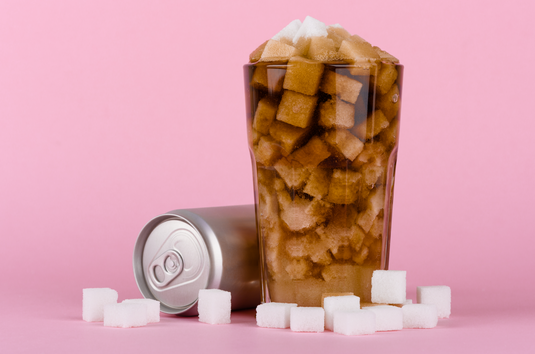7 façons de renforcer votre système immunitaire naturellement

C'est la saison des éternuements, de la toux et du nez qui coule ! La bonne nouvelle, c'est qu'il existe plusieurs façons de renforcer naturellement son système immunitaire pour se protéger du rhume et de la grippe. En tant que nutritionniste holistique, je dis toujours à mes clients que tout le monde tombe malade une fois de temps en temps, mais si vous attrapez plusieurs rhumes et grippes chaque année, vous devriez peut-être vous concentrer davantage sur votre système immunitaire.
Je mets celui-ci en premier pour que vous ne le manquiez pas, car je pense que c'est l'un des points les plus importants. 70 % de votre système immunitaire réside dans l'intestin [1] , et votre digestion est en réalité bien plus complexe qu'on ne le pense. Saviez-vous qu'on estime aujourd'hui que notre corps est composé à parts égales de microbes (bactéries) et de cellules ? Si votre intestin contient suffisamment de bonnes bactéries, votre corps est mieux armé pour combattre les virus du rhume et de la grippe.
En fait, dans une étude, les chercheurs ont administré à des enfants de 3 à 5 ans soit un placebo, soit une souche unique, soit une combinaison de probiotiques deux fois par jour pendant six mois. Comparés au groupe placebo, les groupes ayant reçu un probiotique unique et une combinaison de probiotiques ont vu leur fièvre diminuer respectivement de 53 % et 73 %, leur toux de 41 % et 62 %, et leur écoulement nasal de 28 % et 59 % [2] . L'utilisation d'antibiotiques a également diminué de 68 % et 84 %. Mon probiotique de référence est le probiotique avancé pour la santé intestinale 15 milliards d'UFC . Il ne nécessite pas de réfrigération et son efficacité est garantie dès sa consommation.
Une fois que vous avez intégré les bonnes bactéries dans votre organisme grâce aux probiotiques, il est essentiel de les nourrir avec des prébiotiques. Je vous recommande d'utiliser des superaliments intestinaux fermentés bio+ . Contrairement à d'autres prébiotiques courants (vous connaissez peut-être l'inuline), ce produit contient 22 superaliments végétaux entièrement fermentés (riches en polyphénols) et ne vous laisse pas de ballonnements après sa consommation ! J'adore mélanger une dose de saveur Baies et Grenade à mon smoothie du matin, mais vous pouvez aussi le mélanger avec de l'eau.
Vous savez probablement déjà que le sucre est mauvais, mais voici une information convaincante : une étude menée par l'American Journal of Clinical Nutrition a donné à des participants deux boissons sucrées et a ensuite suivi les performances de leurs globules blancs (qui constituent leur système immunitaire). Le système immunitaire des participants a chuté de 50 % par rapport au groupe témoin. Vous ne buvez peut-être pas deux boissons sucrées d'affilée, mais même de petites quantités de sucre s'accumulent, et hop, votre système immunitaire est chroniquement affaibli. Consultez cet article pour découvrir 15 astuces pour manger moins de sucre.
Si vous êtes stressé, la gestion de ce stress devient la priorité absolue de votre corps. Le problème survient lorsque le stress devient chronique, car votre système immunitaire est alors constamment mis à l'écart. Respirez profondément et prévoyez des moments de détente : cela aidera votre système immunitaire à être au meilleur de sa forme pour combattre les microbes que vous croisez.
La vitamine C ne prévient pas nécessairement le rhume, mais il a été prouvé qu'elle en réduit la durée. Privilégiez les aliments riches en vitamine C comme les oranges, les poivrons, les brocolis, les choux de Bruxelles et les fraises.
Je ne jure que par celui-ci, car il m'aide toujours à combattre rapidement un rhume. Contre certaines bactéries, les propriétés antifongiques et antivirales de l'ail se sont avérées presque aussi efficaces que l'antibiotique pénicilline [3] ! C'est incroyable !
Ma méthode pour l'ail est assez extrême, alors soyez prévenus. Je prends une petite ou une demi-grosse gousse d'ail et je la hache. Ensuite, je la mélange avec une cuillère à café de miel cru (il doit être cru pour bénéficier de ses bienfaits). Je m'assure ensuite que l'ail est bien enrobé de miel, puis je le mâche et l'avale.
Remarque : je ne le fais qu'après avoir mangé, pour éviter de le faire à jeun. Ça brûle en avalant, mais ça marche .
Saviez-vous qu'en cas de carence en vitamine D, ce qui est beaucoup plus fréquent si vous vivez au nord du 49e parallèle, vous avez 11 fois plus de risques de tomber malade [4] ? Selon votre lieu de résidence, cela peut être difficile à gérer naturellement. En hiver, vous devrez probablement prendre un complément de vitamine D3 liquide. La D3 est préférable à la D2, et il est préférable de la prendre sous forme liquide pour une meilleure absorption.
Le zinc, consommé dans les 24 heures suivant l'apparition des symptômes, réduit également la durée du rhume [5] . Les aliments riches en zinc comprennent les huîtres et la viande rouge, mais les graines de courge en sont également une excellente source. Le zinc est essentiel à la santé de la peau ; je recommande donc de consommer régulièrement des aliments riches en zinc. Cependant, dès l'apparition d'un rhume, il est conseillé d'augmenter la dose. Attention à ne pas consommer de zinc à jeun, car cela peut provoquer des nausées.
Références :
[1] https://www.ncbi.nlm.nih.gov/pmc/articles/PMC2515351/
[ 2 ] http://abcnews.go.com/Health/ColdandFluNews/story?id=8167051&page=1
[3] https://www.ncbi.nlm.nih.gov/pmc/articles/PMC3249897/
[4] www.ncbi.nlm.nih.gov/pmc/articles/PMC2870528/?tool=pmcentrez
[5] https://www.ncbi.nlm.nih.gov/pmc/articles/PMC3024156/
1. Nourrissez correctement votre intestin
Je mets celui-ci en premier pour que vous ne le manquiez pas, car je pense que c'est l'un des points les plus importants. 70 % de votre système immunitaire réside dans l'intestin [1] , et votre digestion est en réalité bien plus complexe qu'on ne le pense. Saviez-vous qu'on estime aujourd'hui que notre corps est composé à parts égales de microbes (bactéries) et de cellules ? Si votre intestin contient suffisamment de bonnes bactéries, votre corps est mieux armé pour combattre les virus du rhume et de la grippe.
En fait, dans une étude, les chercheurs ont administré à des enfants de 3 à 5 ans soit un placebo, soit une souche unique, soit une combinaison de probiotiques deux fois par jour pendant six mois. Comparés au groupe placebo, les groupes ayant reçu un probiotique unique et une combinaison de probiotiques ont vu leur fièvre diminuer respectivement de 53 % et 73 %, leur toux de 41 % et 62 %, et leur écoulement nasal de 28 % et 59 % [2] . L'utilisation d'antibiotiques a également diminué de 68 % et 84 %. Mon probiotique de référence est le probiotique avancé pour la santé intestinale 15 milliards d'UFC . Il ne nécessite pas de réfrigération et son efficacité est garantie dès sa consommation.
Une fois que vous avez intégré les bonnes bactéries dans votre organisme grâce aux probiotiques, il est essentiel de les nourrir avec des prébiotiques. Je vous recommande d'utiliser des superaliments intestinaux fermentés bio+ . Contrairement à d'autres prébiotiques courants (vous connaissez peut-être l'inuline), ce produit contient 22 superaliments végétaux entièrement fermentés (riches en polyphénols) et ne vous laisse pas de ballonnements après sa consommation ! J'adore mélanger une dose de saveur Baies et Grenade à mon smoothie du matin, mais vous pouvez aussi le mélanger avec de l'eau.
2. Laissez tomber le sucre
Vous savez probablement déjà que le sucre est mauvais, mais voici une information convaincante : une étude menée par l'American Journal of Clinical Nutrition a donné à des participants deux boissons sucrées et a ensuite suivi les performances de leurs globules blancs (qui constituent leur système immunitaire). Le système immunitaire des participants a chuté de 50 % par rapport au groupe témoin. Vous ne buvez peut-être pas deux boissons sucrées d'affilée, mais même de petites quantités de sucre s'accumulent, et hop, votre système immunitaire est chroniquement affaibli. Consultez cet article pour découvrir 15 astuces pour manger moins de sucre.
3. Calmez-vous
Si vous êtes stressé, la gestion de ce stress devient la priorité absolue de votre corps. Le problème survient lorsque le stress devient chronique, car votre système immunitaire est alors constamment mis à l'écart. Respirez profondément et prévoyez des moments de détente : cela aidera votre système immunitaire à être au meilleur de sa forme pour combattre les microbes que vous croisez.
4. Vitamine C
La vitamine C ne prévient pas nécessairement le rhume, mais il a été prouvé qu'elle en réduit la durée. Privilégiez les aliments riches en vitamine C comme les oranges, les poivrons, les brocolis, les choux de Bruxelles et les fraises.
5. Ail
Je ne jure que par celui-ci, car il m'aide toujours à combattre rapidement un rhume. Contre certaines bactéries, les propriétés antifongiques et antivirales de l'ail se sont avérées presque aussi efficaces que l'antibiotique pénicilline [3] ! C'est incroyable !
Ma méthode pour l'ail est assez extrême, alors soyez prévenus. Je prends une petite ou une demi-grosse gousse d'ail et je la hache. Ensuite, je la mélange avec une cuillère à café de miel cru (il doit être cru pour bénéficier de ses bienfaits). Je m'assure ensuite que l'ail est bien enrobé de miel, puis je le mâche et l'avale.
Remarque : je ne le fais qu'après avoir mangé, pour éviter de le faire à jeun. Ça brûle en avalant, mais ça marche .
6. Vitamine D
Saviez-vous qu'en cas de carence en vitamine D, ce qui est beaucoup plus fréquent si vous vivez au nord du 49e parallèle, vous avez 11 fois plus de risques de tomber malade [4] ? Selon votre lieu de résidence, cela peut être difficile à gérer naturellement. En hiver, vous devrez probablement prendre un complément de vitamine D3 liquide. La D3 est préférable à la D2, et il est préférable de la prendre sous forme liquide pour une meilleure absorption.
7. Zinc
Le zinc, consommé dans les 24 heures suivant l'apparition des symptômes, réduit également la durée du rhume [5] . Les aliments riches en zinc comprennent les huîtres et la viande rouge, mais les graines de courge en sont également une excellente source. Le zinc est essentiel à la santé de la peau ; je recommande donc de consommer régulièrement des aliments riches en zinc. Cependant, dès l'apparition d'un rhume, il est conseillé d'augmenter la dose. Attention à ne pas consommer de zinc à jeun, car cela peut provoquer des nausées.
Références :
[1] https://www.ncbi.nlm.nih.gov/pmc/articles/PMC2515351/
[ 2 ] http://abcnews.go.com/Health/ColdandFluNews/story?id=8167051&page=1
[3] https://www.ncbi.nlm.nih.gov/pmc/articles/PMC3249897/
[4] www.ncbi.nlm.nih.gov/pmc/articles/PMC2870528/?tool=pmcentrez
[5] https://www.ncbi.nlm.nih.gov/pmc/articles/PMC3024156/

















































